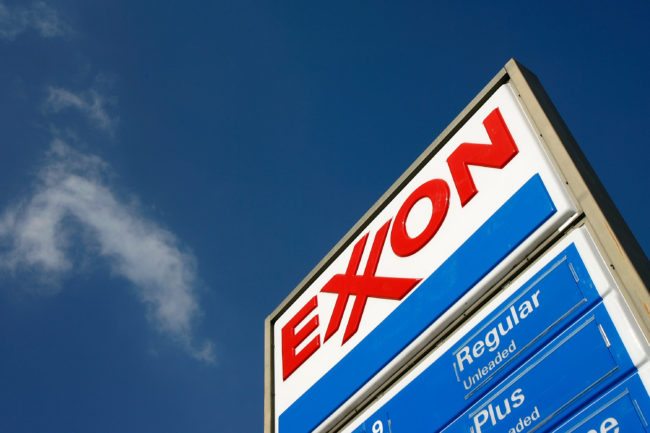Oil and gas giants take a stand against Texas anti-trans law

FORT LAUDERDALE, FL – AUGUST 07: A BP sign is seen outside the gas station August 7, 2006 in Fort Lauderdale, Florida. The company was trying to shut down the Prudhoe Bay oil field in northern Alaska after finding severe corrosion in a pipeline. Oil prices rose by $2 a barrel over news. (Photo by Joe Raedle/Getty Images)
Oil and gas and chemical companies have taken a stand against a proposed laws to restrict trans bathroom use in Texas.
The Dallas Morning News reports that CEOs from BP America, Chevron North America E&P, Dow Chemical Co., Exxon Mobil Global Services and Halliburton have opposed efforts to ban trans people from using gender-appropriate bathrooms.
The CEOs said that proposed measures would restrict their ability to hire and keep talent in the state.

The companies have also stood up against such measures in the past.
A special session was called by Governor Greg Abbott in part to attempt to pass legislation which would restrict transgender bathroom use to that which corresponds to sex at birth.
Previous efforts to pass the legislation failed during the regular session which ended in May.
The Senate in the US state of Texas last week passed a discriminatory anti-trans bathroom bill.
The Bill forces people to use the bathroom that corresponds with the gender they were assigned at birth.
It also prevents public buildings such as schools and government offices from enforcing rules which would allow trans people to use the bathroom that corresponds with their gender identity.
Ten hours of testimony was heard at the weekend before a Senate Committee passed the legislation.
It then went to the full Senate and passed with 21 votes to 10.
Senate Bill 91 debated last week. The two pieces of legislature are almost identical.
SB 6 was a similar bill that was passed earlier this year in the Senate, but it failed in the house.
Activists spoke for 18 hours during testimonies against SB 6, meaning that the Senate set a registration limit for the hearing of SB 3.
Senator Lois Kolkhorst, who authored all three pieces of legislature, said in the opening of the hearing for SB 3 that it was a “Texan tradition” to “take care of these issues”.
Kali Cohn, a staff attorney for ACLU Texas, said that the bathroom bill is in violation of federal law and the US Constitution.
Cohn testified before the senate committee, referencing Supreme Court cases and other legal precedents the ACLU says makes SB 3 and SB 91 illegal.
“They’ve introduced legislation that targets transgender Texans under the guise of privacy and safety,” Cohn said. “That’s not what those bills do — what they in fact do is push transgender people away from being able to participate in public life.”
Business owners in large cities in the state have already expressed fears about the effect the Bill is going to have.
Phillip Jones, CEO of the Dallas Convention & Visitors Bureau said that Dallas had already seen losses of $40 million, and could expect to lose another $1 billion if the law is passed.
HB2 supporters have said its costs are tiny compared to a state economy worth an estimated $500 billion a year, but more than 2,900 jobs set to go to North Carolina have now gone elsewhere.
The most damaging rejection came from money giant PayPal, which pulled out from a facility that would have added an estimated $2.66 billion and 400 jobs to North Carolina’s economy.
Adidas, Deutsche Bank, the National Collegiate Athletic Association (NCAA), National Association for the Advancement of Colored People (NAACP) and former Beatle Ringo Starr are other prominent names who have pulled out from using the state.

